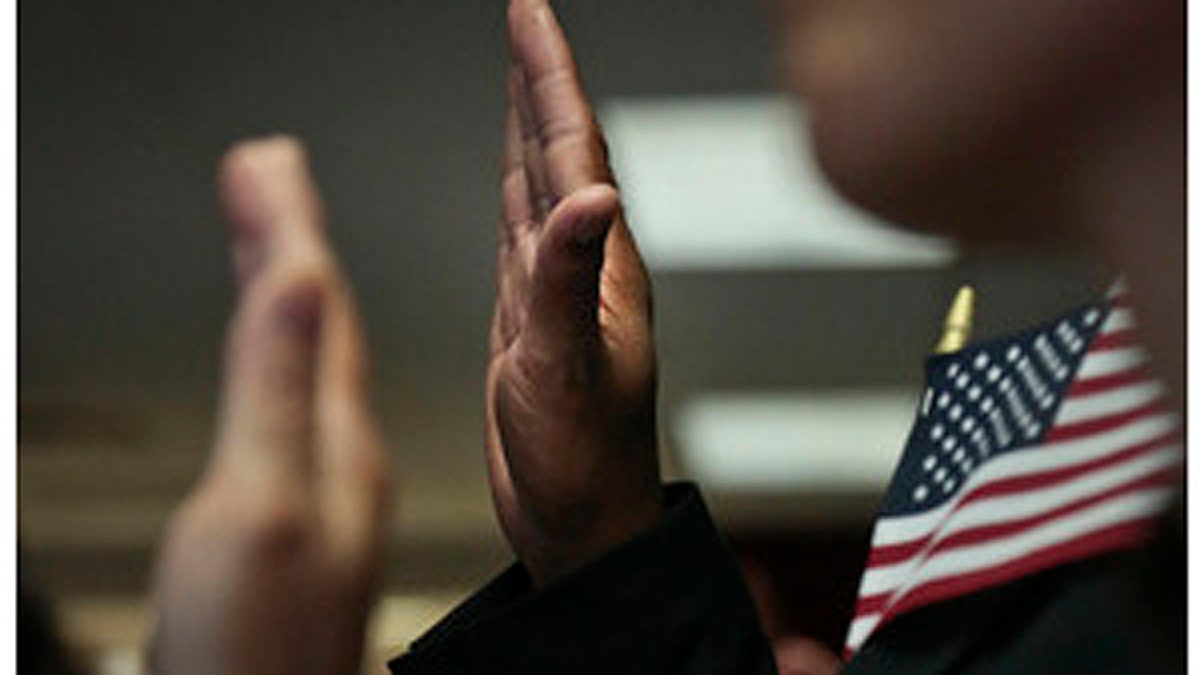
Several states are considering similar laws that would require graduates to know as much about their government as new immigrants. (AP)
An Indiana lawmaker says high school grads ought to know at least as much about civics as the nation's newest citizens, and he wants to put them to the test.
Under a measure proposed by Hoosier State Senate Education Committee Chairman Dennis Kruse, a Republican, students who want to graduate high school would be required to pass the same civics test as immigrants who want to become U.S. citizens, according to the Lafayette Journal & Courier. He plans to introduce a bill during the upcoming legislative session, which convenes next week.
"I believe that if we're asking someone from a foreign country to know this information, that our own citizens ought to know it," Kruse told the paper.
Kruse has not completed a draft of the bill, but said it would require public school students to correctly answer at least 60 percent of the 100 civics questions that the U.S. Citizenship and Immigration Services uses to administer its naturalization test. Immigrants applying for U.S. citizenship are asked 10 of those 100 questions at random and must get six correct to pass.
Questions include "Who was the first President?" and "When was the Declaration of Independence adopted?"
Students would be able to take the test any time from 8th grade to 12th grade, according to Kruse. They would have to pass in order to receive a diploma.
Similar measures are under consideration in 15 states, according to Sam Stone, political director for the Civics Education Initiative, an Arizona-based non-profit group that is lobbying for the civics test across the country.
Stone told the newspaper that about 92 percent of immigrants applying for U.S. citizenship pass the test on their first try, but as few as 5 percent of high school students passed the test.
"Those are really poor numbers," he said. "No matter how much knowledge you have, if you don't know how to use that knowledge within our system of government, it's not much good," he said. "Our government was designed to be run by informed, engaged citizens. We have an incredibly dangerous form of government for people who don't know how it works."




